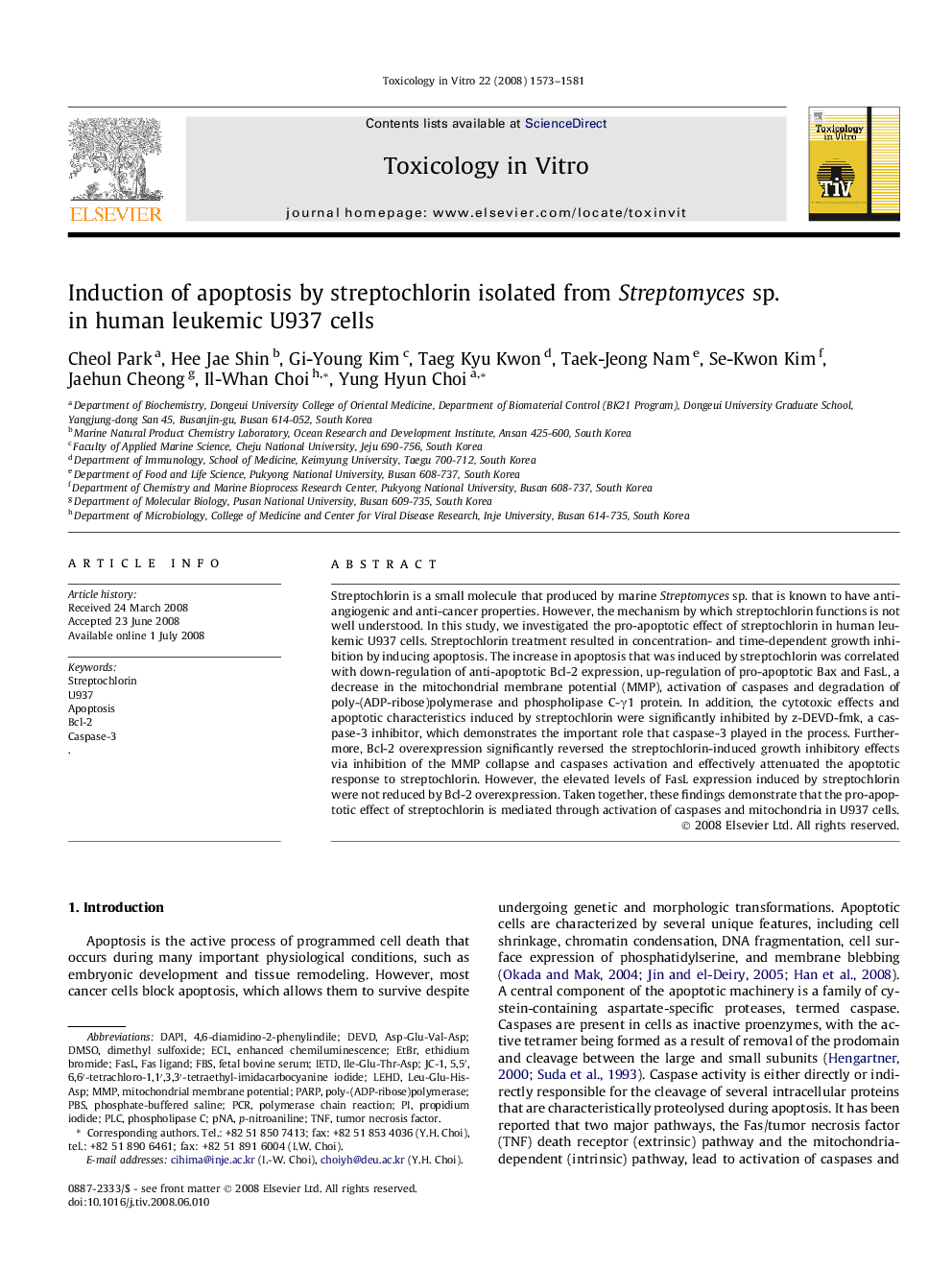| Article ID | Journal | Published Year | Pages | File Type |
|---|---|---|---|---|
| 2603104 | Toxicology in Vitro | 2008 | 9 Pages |
Streptochlorin is a small molecule that produced by marine Streptomyces sp. that is known to have anti-angiogenic and anti-cancer properties. However, the mechanism by which streptochlorin functions is not well understood. In this study, we investigated the pro-apoptotic effect of streptochlorin in human leukemic U937 cells. Streptochlorin treatment resulted in concentration- and time-dependent growth inhibition by inducing apoptosis. The increase in apoptosis that was induced by streptochlorin was correlated with down-regulation of anti-apoptotic Bcl-2 expression, up-regulation of pro-apoptotic Bax and FasL, a decrease in the mitochondrial membrane potential (MMP), activation of caspases and degradation of poly-(ADP-ribose)polymerase and phospholipase C-γ1 protein. In addition, the cytotoxic effects and apoptotic characteristics induced by streptochlorin were significantly inhibited by z-DEVD-fmk, a caspase-3 inhibitor, which demonstrates the important role that caspase-3 played in the process. Furthermore, Bcl-2 overexpression significantly reversed the streptochlorin-induced growth inhibitory effects via inhibition of the MMP collapse and caspases activation and effectively attenuated the apoptotic response to streptochlorin. However, the elevated levels of FasL expression induced by streptochlorin were not reduced by Bcl-2 overexpression. Taken together, these findings demonstrate that the pro-apoptotic effect of streptochlorin is mediated through activation of caspases and mitochondria in U937 cells.
